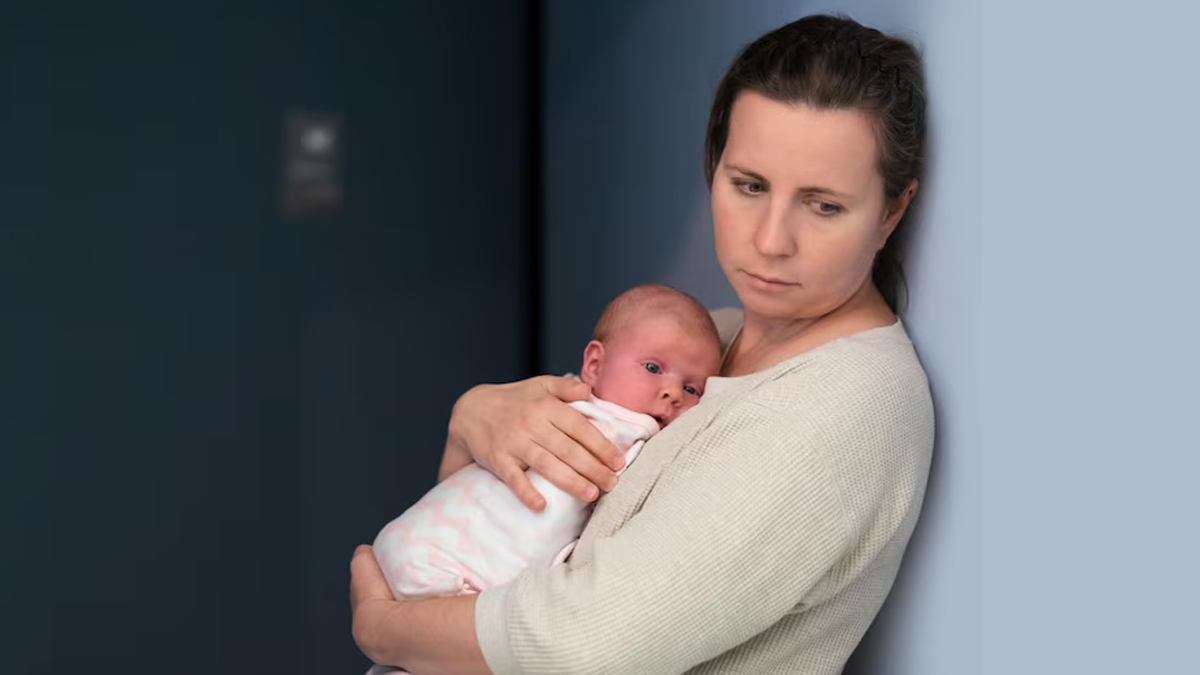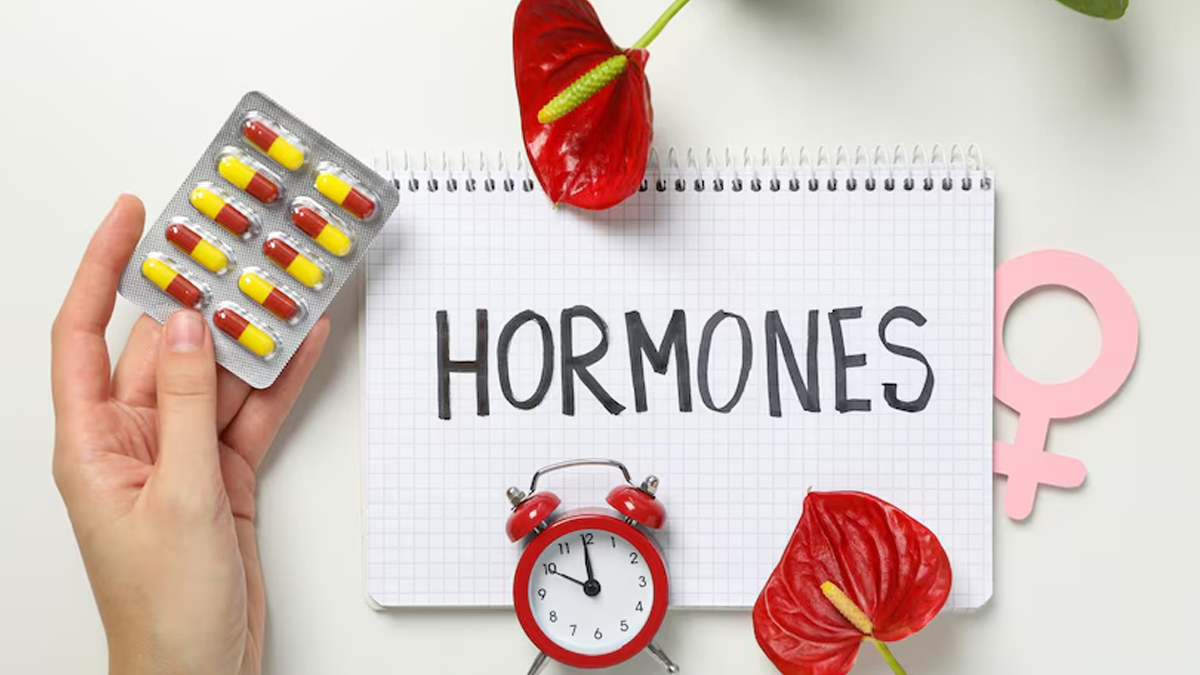
Postpartum bipolar disorder (PPBD) is a rare but serious mental health condition that affects women after childbirth. It is characterised by extreme mood swings ranging from manic highs to depressive lows and can significantly impact a mother's ability to care for herself and her newborn. Unlike usual postpartum mood disturbances, such as the "baby blues", PPBD is more severe and requires immediate medical attention.
Table of Content:-
CHECK YOUR
MENTAL HEALTH

To understand PPBD and its symptoms, causes, treatment, and prevention, OnlyMyHealth team interacted with Dr Chetna Jain, Director of the Department of Obstetrics and Gynaecology, Cloudnine Group of Hospitals, Sector 14, Gurugram.
According to a research published in Journal of Affective Disorders, 21.5% - 54% of women who suffer from postpartum depression (PPD) may also have postpartum bipolar disorder. The study also stated that many women who are diagnosed with PPD may actually have PPBD instead.
Symptoms of Postpartum Bipolar Disorder
According to Dr Jain, “PPBD symptoms typically appear within the first few weeks to months after childbirth. They can be categorised into manic, depressive, and psychotic symptoms.”

Manic Symptoms:
- Increased energy and restlessness
- Reduced need for sleep without feeling tired
- Racing thoughts and rapid speech
- Impulsive or risky behaviour, such as excessive spending or reckless decisions
- Heightened self-confidence or grandiosity
- Irritability or aggression
Depressive Symptoms:
- Persistent feelings of sadness, hopelessness, or worthlessness
- Fatigue and lack of energy
- Difficulty concentrating or making decisions
- Loss of interest in activities once enjoyed
- Changes in appetite and sleep patterns (insomnia or excessive sleeping)
- Suicidal thoughts or behaviours
Psychotic Symptoms:
In some cases, women with PPBD may experience psychosis, which includes delusions, hallucinations, or paranoia. This is a medical emergency requiring immediate attention.
Dr Jain said, "Postpartum bipolar disorder can escalate rapidly if symptoms are overlooked. Early detection and intervention are essential for safeguarding both the mother and baby."
Also read: Baby Blues And Postpartum Depression: Experts Explain The Differences Between The Two
Causes of Postpartum Bipolar Disorder
Dr Jain said that the exact cause of PPBD is unknown, but several factors are believed to contribute to its development. Here are some of the causes of PPBD listed by Dr Jain.

Hormonal Changes:
After childbirth, there is a dramatic drop in hormones such as oestrogen and progesterone, which can trigger mood disorders in vulnerable individuals.
Genetic Predisposition:
A family or personal history of bipolar disorder or other mood disorders significantly increases the risk of developing PPBD.
Sleep Deprivation:
The disrupted sleep patterns common during the postpartum period can exacerbate mood swings and trigger manic or depressive episodes.
Psychological Stress:
The physical and emotional demands of caring for a newborn, combined with societal pressures, can contribute to the onset of PPBD.
Previous Mental Health Conditions:
Women with a history of mental health issues, particularly bipolar disorder, are more likely to experience a recurrence or new episode postpartum.
Treatment for Postpartum Bipolar Disorder

PPBD is treatable, and early intervention is crucial to prevent complications for both the mother and child. Treatment includes a combination of medication, therapy, and lifestyle modifications.
Medication:
- Mood stabilisers: Lithium or anticonvulsants (e.g., valproate or lamotrigine) help manage manic and depressive episodes.
- Antidepressants: Prescribed cautiously to address depressive symptoms.
- Antipsychotics: Used in cases involving psychotic symptoms.
Dr Jain advises, "It is essential to work closely with a psychiatrist experienced in postpartum care to ensure medications are both effective and safe, especially for breastfeeding mothers."
Psychotherapy:
- Cognitive Behavioural Therapy (CBT): Helps identify and manage negative thought patterns and behaviours.
- Interpersonal Therapy (IPT): Focuses on improving relationships and coping with the stress of new motherhood.
Hospitalisation:
Severe cases, particularly those involving psychosis, may require hospitalisation to stabilise the mother and ensure her and the baby’s safety.
Support Groups:
Connecting with other mothers facing similar challenges can provide emotional support and reduce feelings of isolation.
Family Involvement:
Educating family members about PPBD and involving them in the treatment process can create a supportive environment for recovery.
Prevention of Postpartum Bipolar Disorder
While PPBD cannot always be prevented, Dr Jain says that certain strategies can reduce the risk or severity of symptoms.

Prenatal Planning:
“Women with a history of bipolar disorder or other mental health conditions should work with their healthcare provider to create a postpartum care plan,” Dr Jain emphasised. This may include medication adjustments and close monitoring.
Stress Management:
Engaging in stress-reducing activities, such as mindfulness, meditation, or gentle exercise, can help mitigate emotional stress during the postpartum period.
Building a Support System:
Having a reliable support network of family, friends, and healthcare providers can help manage the demands of new motherhood.
Adequate Sleep:
Prioritising rest and enlisting help with nighttime feedings can prevent sleep deprivation, a known trigger for bipolar episodes.
Postpartum Screening:
Regular mental health check-ups during and after pregnancy can help detect early signs of PPBD and facilitate timely intervention.
Impact of Postpartum Bipolar Disorder
PPBD can have profound consequences if left untreated. It may interfere with mother-infant bonding, impact breastfeeding, and strain family relationships. In severe cases, untreated PPBD can lead to self-harm or harm to the baby.
Dr Jain concludes, "Timely treatment, along with family support, can help mothers navigate this difficult phase and ensure their mental well-being. A multidisciplinary approach is key to recovery."
Also watch this video
How we keep this article up to date:
We work with experts and keep a close eye on the latest in health and wellness. Whenever there is a new research or helpful information, we update our articles with accurate and useful advice.
Current Version